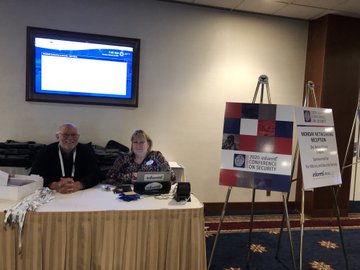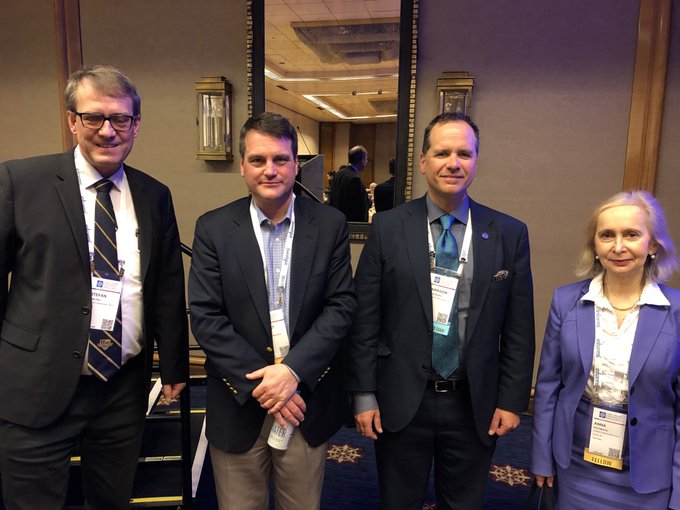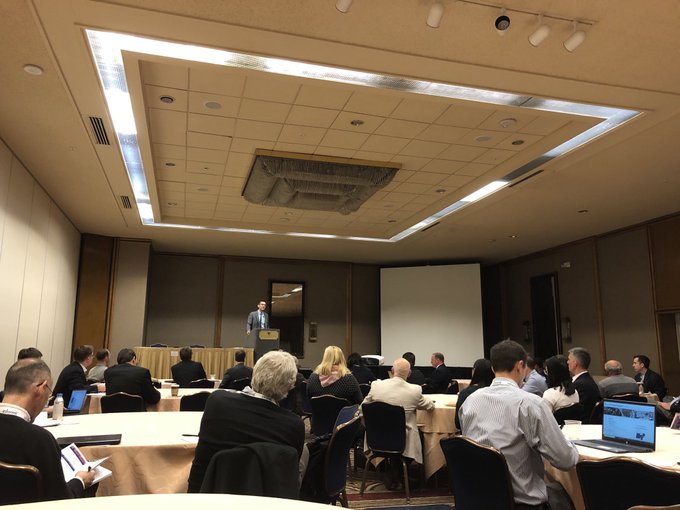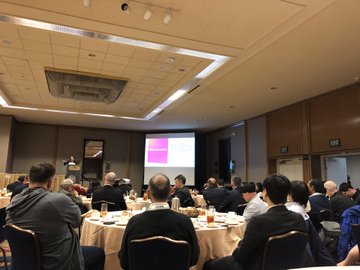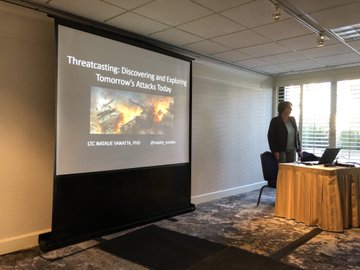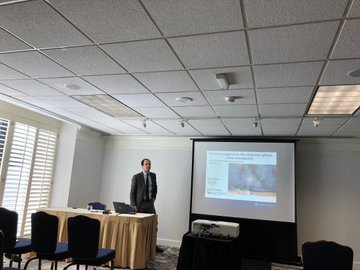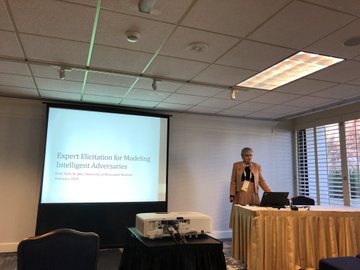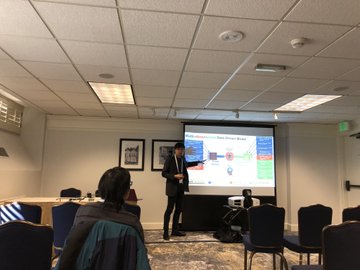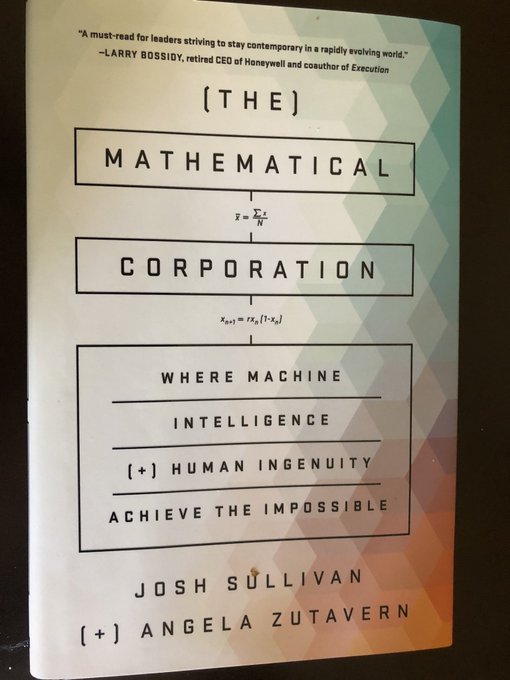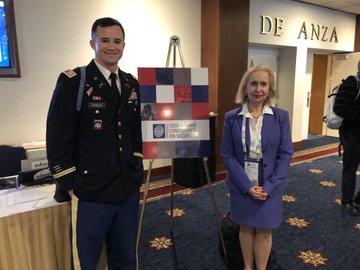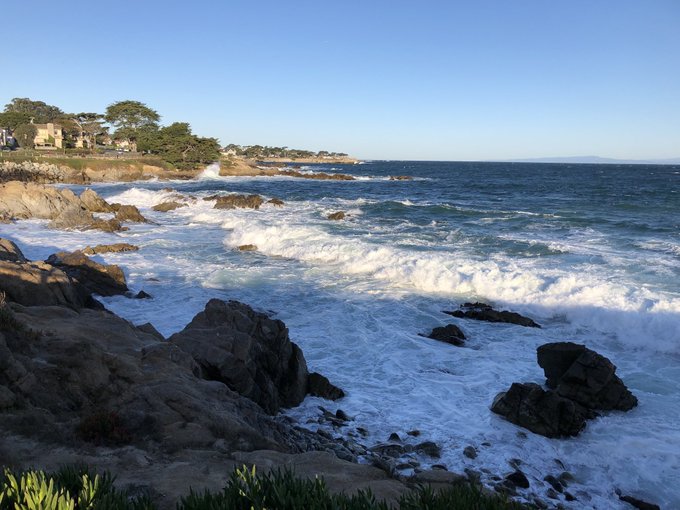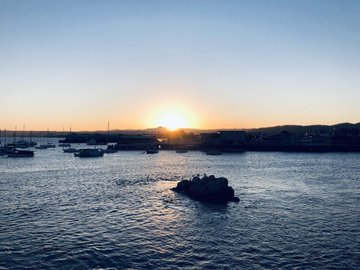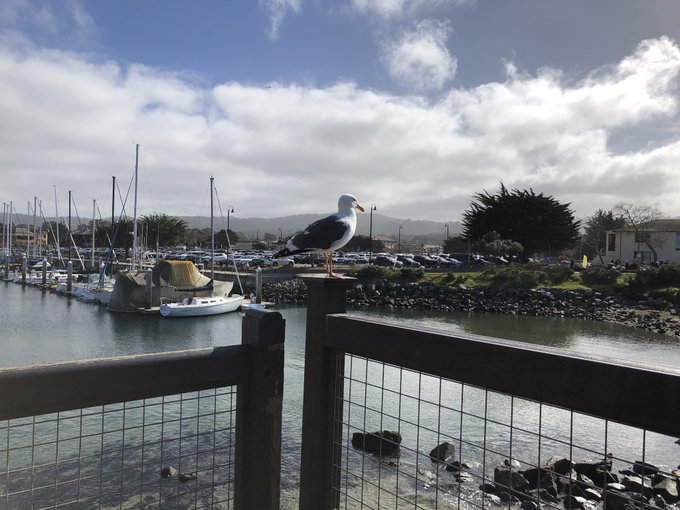I had had the pleasure of hosting Dr. Dahlberg previously and met him when he presented a paper in the first Dynamics of Disasters conference that I co-organized in Kalamata, Greece. The paper that he delivered at this conference appears in the refereed conference proceedings.
Coincidentally, Dr. Dahberg delivered his talk yesterday in Isenberg's new Business Innovation Hub, which was designed by the award-winning Danish architect Bjarke Ingels. Last April, Ingels came and spoke at the unveiling of the hub and accompanying celebrations.
I gave some opening remarks and then Mojtaba Salarpour, the President of the UMass Amherst INFORMS Student Chapter, welcomed the speaker and the audience. It was great to have faculty and students from the Isenberg School, the UMass Amherst College of Engineering, and the College of Computer and Information Sciences in attendance, as well as faculty from other universities, and even several journalism students who were excited about covering the event!


Dr. Dahlberg is a faculty member at the Royal Danish Defence College and considers himself a "disaster historian." He has worked for the Danish Emergency Management Agency in the Department of Crisis Management.
He emphasized that there are no natural hazards in Denmark and that "all disasters are man-made." What is especially challenging now is that there are more risks from climate change and advanced technology. And many disasters have been the result of human error, due to complexities of advanced technology. He also emphasized that Denmark is one of the most peaceful countries but is being faced with sea level rise, along with expansions of maritime routes, which can lead to more maritime accidents and disasters.
He noted that emergency management in Denmark has evolved from "civil protection" and that Denmark in the Anthropocene is seeing more and more extreme weather events with extreme rainfall.
He brought up numerous interesting points, including the need for "zero responders," who are volunteers rising up to assist. He mentioned an incident of extreme rainfall and flooding in Denmark in 2013, for which multiple shelters were identified but very few citizens actually used them. The Danes, through social media, had informed the community that they had opened up their own residences to those needing shelter and, in effect, solved the disaster response effectively. People, for the first time, in Denmark, used one another and social media in this way. The peer to peer coordination and communication was very successful!
Dr. Dahlberg, on February 7, 2014, contributed to a Danish Emergency Management Association Workshop which he called "Resilience 101," in which he spoke about resilience as being the ability "to bounce forward" after a disturbance that disrupts normal operations. He noted the work of Dr. Tierney, who was also on his PhD dissertation committee, who defines "resilience as the obverse of risk" and the work of Dr. Alexander Augustine, who notes that "We need to build resilience to the uncertainties that lie ahead."
A more resilient Denmark is needed to tackle climate change. He also emphasized that "we cannot build our way out of everything" and mentioned the Rockefeller Foundation's 100 Resilient Cities program.
Dahlberg believes that one must stress the system for resiliency.
He also emphasized that it is expensive to invest in emergency management and singled out the "Arctic Response Force." He singled out the possibility of a cruise ship disaster in Arctic waters. He has even written up disaster scenarios, which were then used in Denmark for disaster preparedness and response exercises!
After his presentation, there was a terrific Q&A; we took a group photo of those who were still in attendance, followed by a delicious lunch at the University Club at UMass Amherst, at which the stimulating conversations continued.
And, at lunch, he told us how to escape from a car sinking in the water and provided us with advice to always wear hiking boots while flying (helps in climbing out should you need to evacuate while taking off or landing).
We thank Dr. Rasmus Dahlberg for his brilliant lecture on resilience and wish him much continuing professional and personal success! His work and energy inspired all of us.
We ended the perfect intellectual and social day with dinner at Judie's in Amherst, complete with their iconic item - popovers!









